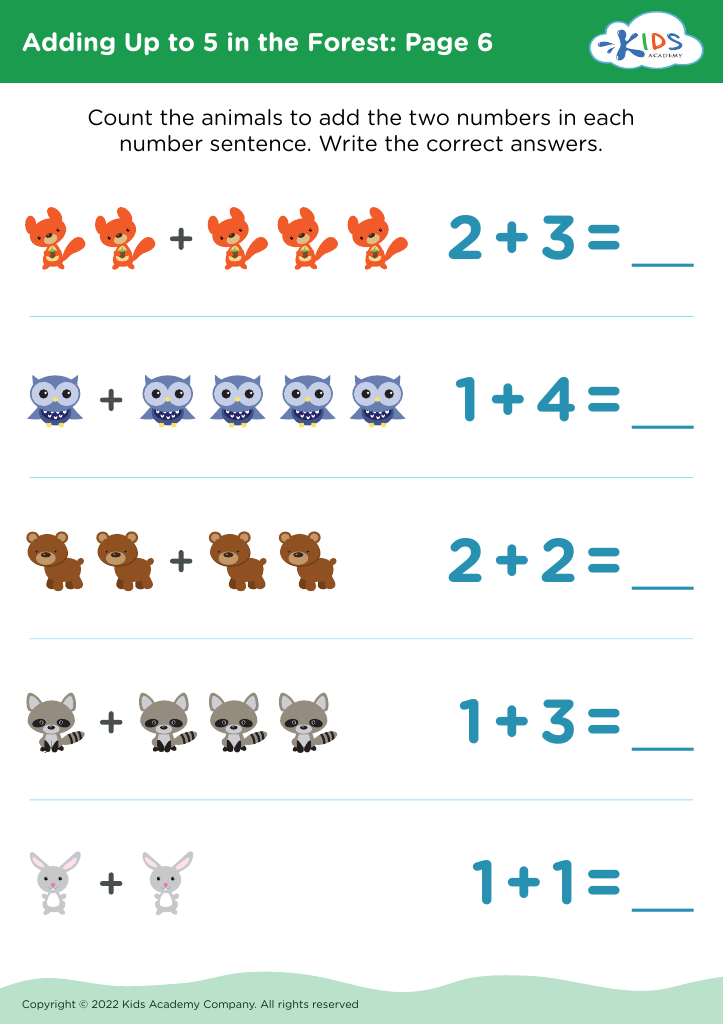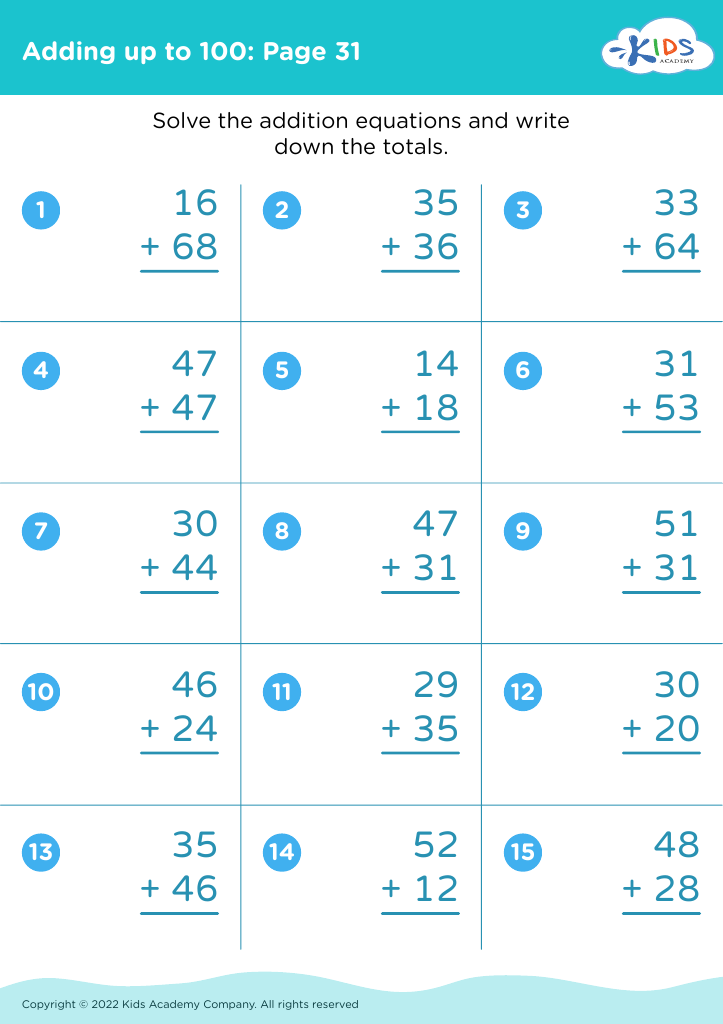Improve fine motor skills Math Worksheets for Ages 5-9
3 filtered results
-
From - To
Discover fun ways to boost your child's fine motor skills with our engaging math worksheets, designed for ages 5-9! These thoughtfully crafted activities combine math concepts with exercises to enhance your child’s hand-eye coordination, dexterity, and pencil control. Perfect for both home and classroom use, our colorful printables are packed with engaging tasks that keep young learners interested while promoting their motor development and mathematical understanding. Whether they are tracing numbers, solving simple math problems, or connecting dots, children will build essential skills while having fun. Visit Kids Academy to help your child develop and grow confidently!
Parents and teachers should care about improving fine motor skills in math for ages 5-9 as these are critical developmental years. Fine motor skills involve the small muscles in the hands and fingers, essential for tasks such as writing, cutting, and manipulating objects. Enhancing these skills early helps children succeed in academic and everyday activities.
At ages 5-9, children are introduced to math concepts that often require fine motor skills, such as counting objects, drawing shapes, and writing numbers. Strengthening these skills can make mathematical tasks easier and more engaging, fostering a positive attitude toward math. For instance, activities like bead threading help children understand counting and patterns while developing hand-eye coordination.
Research indicates that strong fine motor skills correlate with better academic performance. Improved dexterity allows for clearer, more accurate writing and quicker task completion, boosting confidence and encouraging a love for learning.
Moreover, fine motor skills are foundational for everyday independence. Skills like using utensils, tying shoelaces, and dressing are all facilitated by good fine motor control. Therefore, focusing on these during math activities can improve overall coordination and functional independence, shaping well-rounded, capable individuals.




















